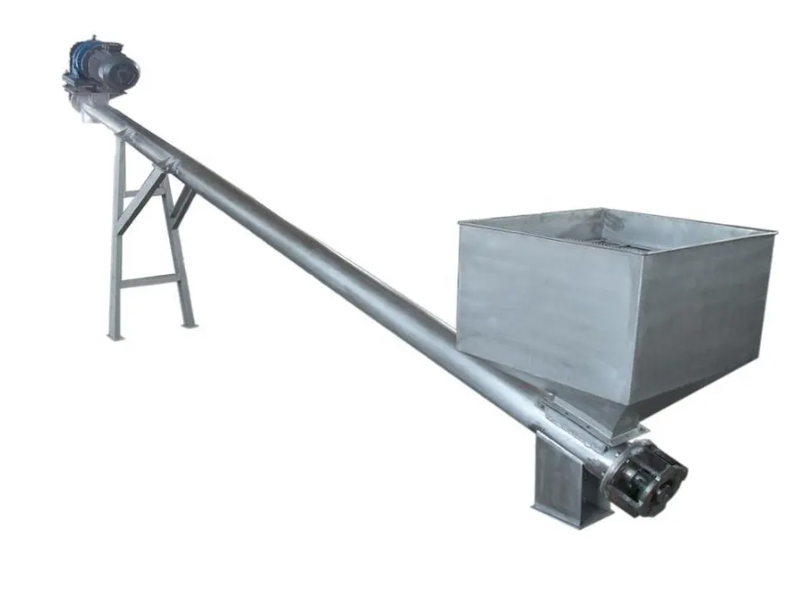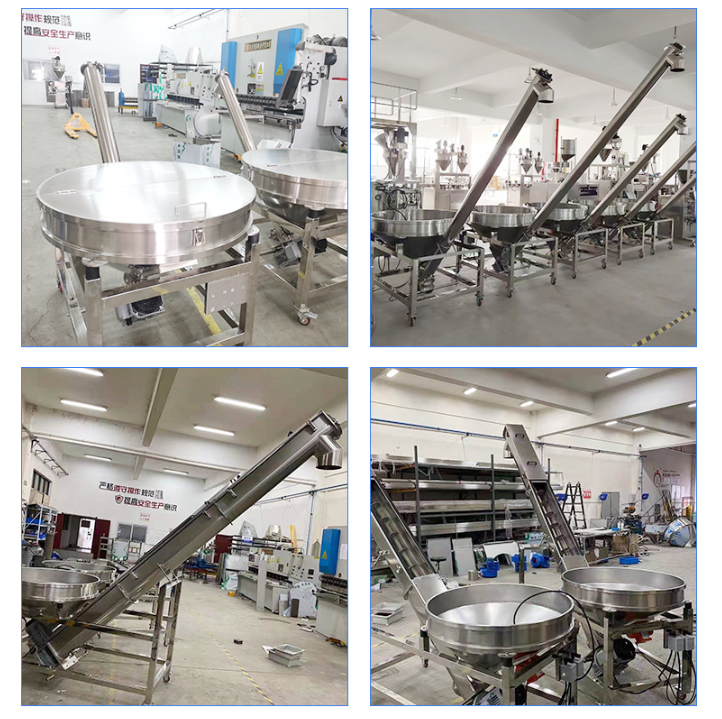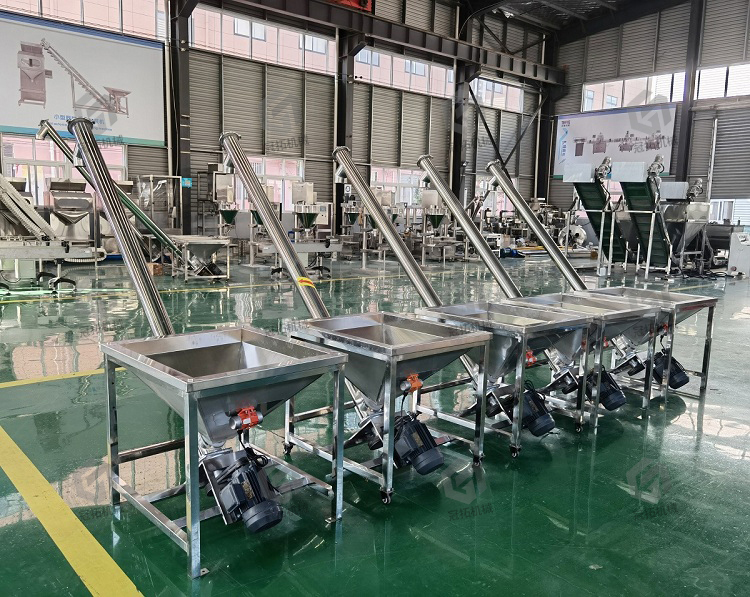Screw conveyors are widely used in the flour industry for the transportation of flour and other dry, powdery materials.

Flour transportation: Screw conveyors are used to transport flour from silos or storage bins to processing machines, such as mixers or packaging machines.
Ingredient handling: Screw conveyors are used to transport various ingredients, such as sugar, salt, and yeast, to the mixing or processing machines.
Dust collection: Screw conveyors can be used for dust collection by transporting flour or other powdery materials from a processing machine to a dust collector or filtration system.
Flour blending: Screw conveyors can be used to blend different types of flour or other dry ingredients in a mixing process.
Flour packaging: Screw conveyors can be used to transport flour to packaging machines for filling bags or other containers.
Are there any common issues or challenges that arise when using screw conveyors in the flour industry?
there can be some common issues or challenges that arise when using screw conveyors in the flour industry. Here are some of the most common ones:
Buildup of flour: Flour can sometimes accumulate inside the screw conveyor, causing blockages and reducing the efficiency of the conveyor. This can be addressed by choosing the right type of screw conveyor for the application, such as a shaftless screw conveyor, and by ensuring regular cleaning and maintenance of the conveyor.
Wear and tear: The abrasive nature of flour can cause wear and tear on the conveyor components, such as the screw blade, bearings, and seals. This can be addressed by choosing the right materials for the conveyor components, such as stainless steel or abrasion-resistant coatings, and by ensuring regular inspection and maintenance of the conveyor.
Contamination: The flour industry requires high levels of hygiene and cleanliness to avoid contamination of the flour. Screw conveyors can be a potential source of contamination if not properly designed and maintained. This can be addressed by choosing the right materials for the conveyor components, such as food-grade stainless steel, and by ensuring regular cleaning and sanitation of the conveyor.
Overloading: Overloading the conveyor can cause excessive wear and tear on the components, as well as blockages and reduced efficiency. This can be addressed by choosing the right size of conveyor for the application and by ensuring proper operation and maintenance of the conveyor.

There are several characteristics of flour that screw conveyors need to be customized for to ensure efficient and effective transportation. Here are some of the key characteristics:
Flowability: Flour is a dry, powdery material that can be prone to caking or compacting, depending on the type and moisture content of the flour. Screw conveyors need to be customized to ensure that the flour flows smoothly and evenly through the conveyor without clogging or bridging.
Abrasiveness: The abrasive nature of flour can cause wear and tear on the conveyor components, such as the screw blade, bearings, and seals. Screw conveyors need to be customized with materials that can withstand the abrasiveness of the flour to ensure the longevity of the conveyor.
Hygiene: The flour industry requires high levels of hygiene and cleanliness to avoid contamination of the flour. Screw conveyors need to be customized with materials that are food-grade and easy to clean and sanitize.
Particle size and shape: The particle size and shape of different types of flour can vary, which can affect the flow characteristics of the flour through the conveyor. Screw conveyors need to be customized to ensure that the conveyor is designed to handle the specific size and shape of the flour particles.
Moisture content: The moisture content of flour can vary depending on the type of flour and the manufacturing process. Screw conveyors need to be customized to handle the moisture content of the flour, as moisture can affect the flowability and cause clogging or bridging.

Overall, screw conveyors are a vital component in the flour industry, providing a reliable and efficient method for the transportation of flour and other dry materials. The conveyor can be customized to meet the specific requirements of the flour industry, such as the desired flow rate, distance of travel, and the characteristics of the flour.
Address:China,Yanjin county forest park gate to the west 1000 meters north road.